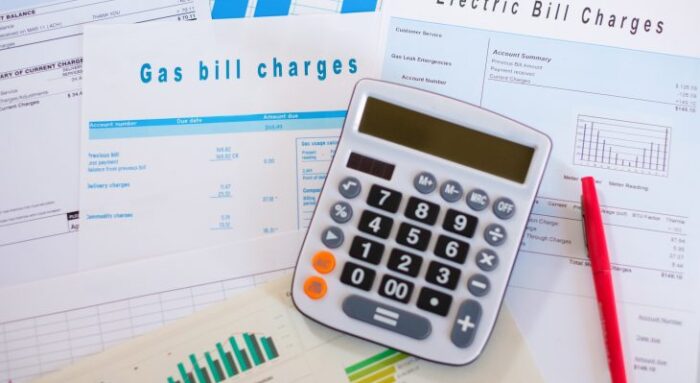The analysts said that, for the energy bills of a typical dual fuel household, the price cap between July and September this year will fall £116, from its current price at £1,690.
This is a fall of 25% annually and 7% quarterly, and prices will be around £500 cheaper in July 2024 than in 2023. Of the £1,574, £832.40 will be made up of electricity prices, while £741.98 will be gas prices.
It also said it predicts the cap, which is an average limit on the amount providers can charge, will increase slightly in October and will then fall again in January 2025.
In its latest forecast, the group said there has been a slight increase in energy costs recently after hitting a 30-month low in February. This has been blamed on short-term influences on the energy market, such as weather and supply issues, along with longer-term factors including raised oil prices and geopolitical concerns.
Bills still ‘hundreds of pounds’ higher
A reduction in energy bills is welcomed, but the analysts said bills are still “hundreds of pounds” above pre-crisis levels. It also said there are concerns around the effectiveness of Ofgem’s price cap in bringing down consumer costs to more affordable levels.

Wellness and wellbeing holidays: Travel insurance is essential for your peace of mind
Out of the pandemic lockdowns, there’s a greater emphasis on wellbeing and wellness, with
Sponsored by Post Office
It comes as Ofgem earlier this year said it would review the price cap and how it works. This could mean changes to the way it’s calculated and to energy standing charges, which have been criticised by energy experts and suppliers.
Ofgem will confirm the next price cap on May 24.
‘Lower prices don’t erase all the problems’
Dr Craig Lowrey, principal consultant at Cornwall Insight, said: “Of course, we must recognise lower prices don’t erase all the problems. The very fact we are still seeing bill levels [that] are hundreds of pounds above pre-crisis levels underscores the ongoing challenges faced by households.
“While the cap is certainly not the ticket back to long-term energy bill affordability, Ofgem’s review could pave the way for fairer, more efficient energy bills. However, given the breadth of reforms being considered by the regulator, it is worth remembering that such changes will inevitably lead to trade-offs.
“The path forward for energy pricing remains uncertain, and with stakeholders advocating for reforms – coupled with a general election on the horizon – energy bills are likely to be an area of continued debate and transformation in the months ahead.”
‘It’s crucial not to be complacent’
Richard Neudegg, director of regulation at Uswitch.com, said: “A predicted 7% drop in energy prices in July is clearly good news, with the price cap looking likely to hit its lowest level in over two years.
“The future still remains uncertain, and with the price cap changing every three months – currently expected to rise in October before falling slightly in January – it’s crucial not to be complacent.
“Households who want to lock in rates for price certainty should run a comparison to see what energy tariffs are available to them.
“There are many 12-month fixed tariffs available at rates cheaper than the current price cap, and even some that are 2% below these new predicted July rates.”




